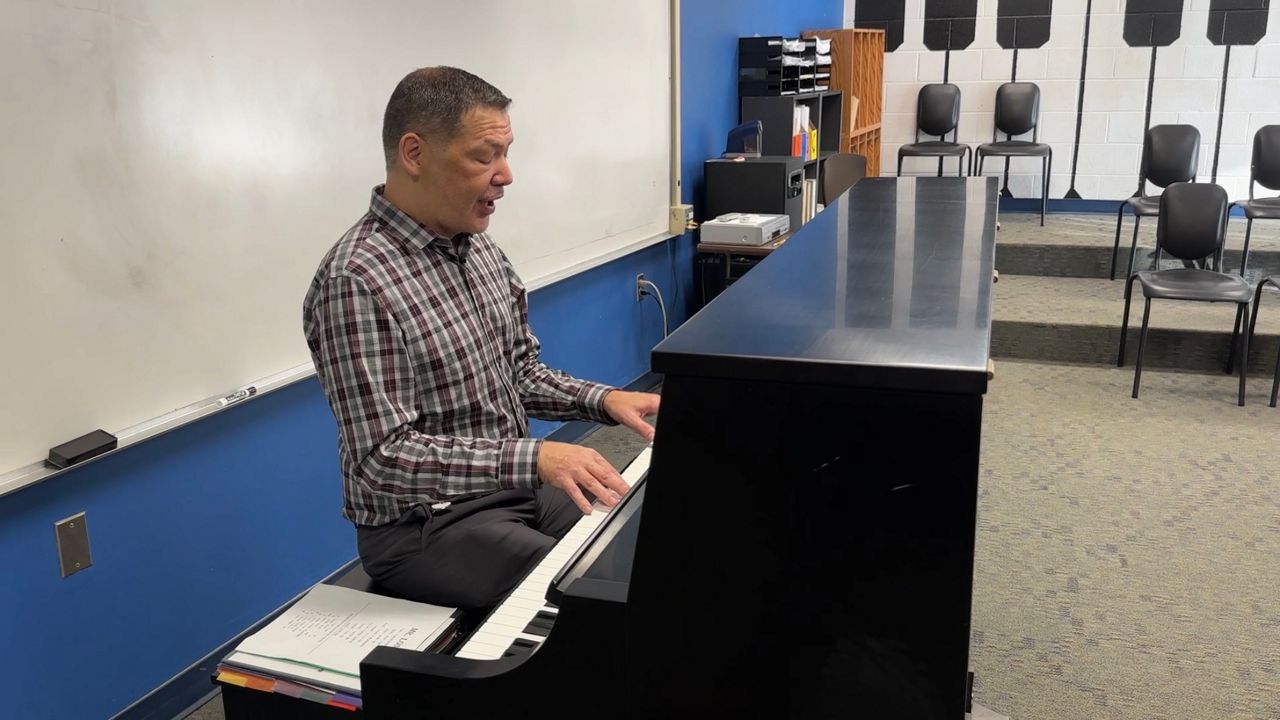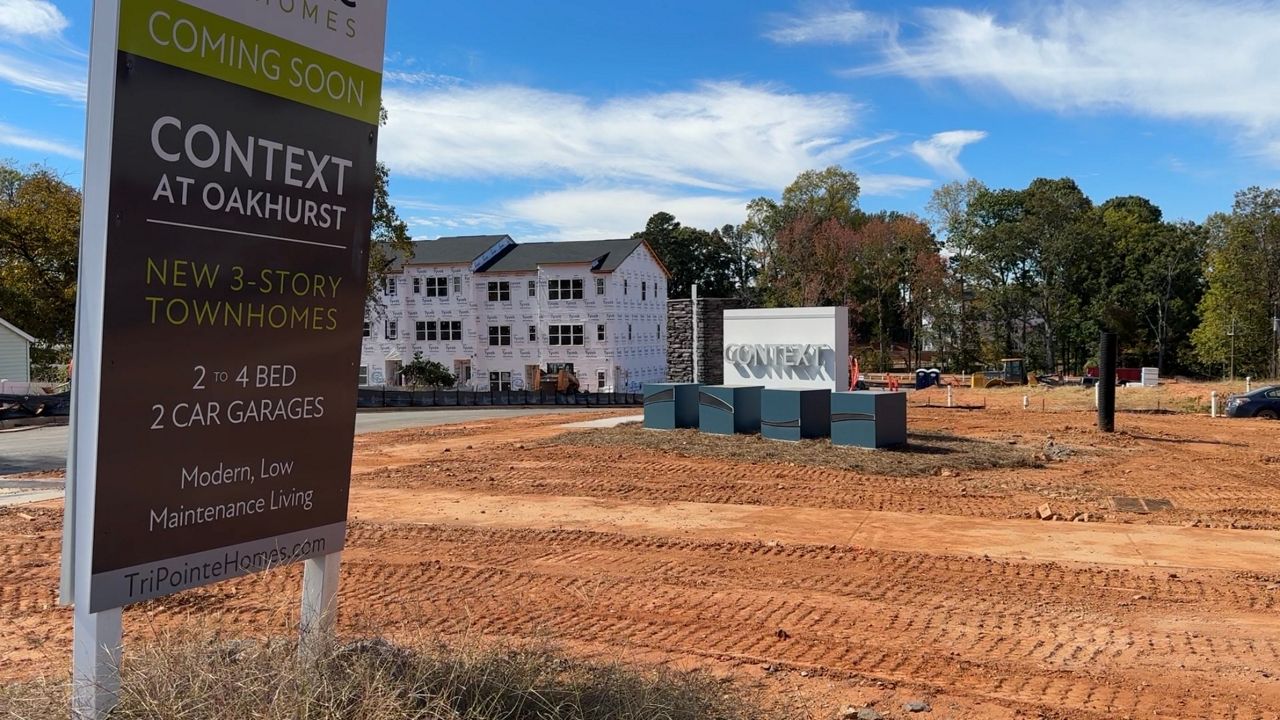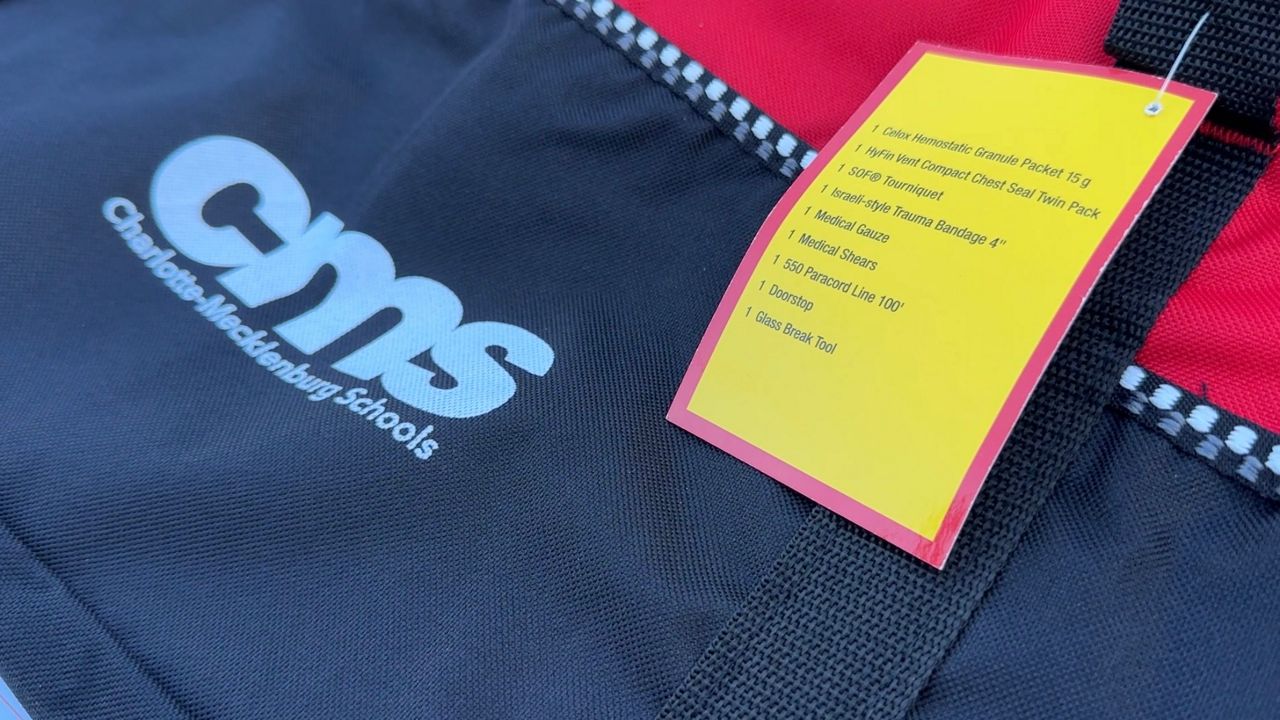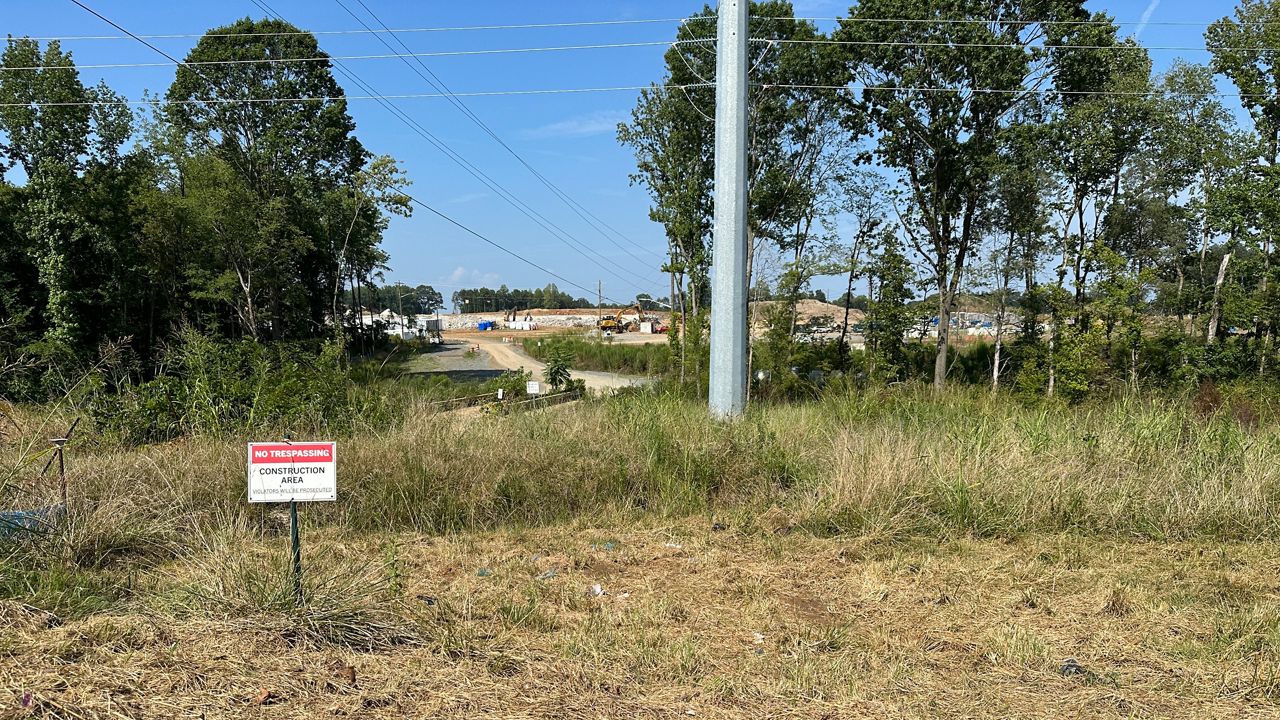UNION COUNTY, N.C. — A Union County man, who's had issues with his private well water for six decades, is finally set to receive relief.
Jim Outen, a Union County resident, said his well water has bad quality, quantity and is even dangerous to consume.
Roughly 25% of Union County relies on private wells, often in rural areas. The wells can have water quality issues with heavy metals and other materials, making the water unsafe to use and rough on plumbing.
A Union County water program offers county water to private well users
Wells in Union County can test past acceptable levels for iron, manganese and arsenic
Applications are currently open for the Union County program
Outen and many of his neighbors are now set to benefit from a revamped county program, which is aiming to get more residents on cleaner, cheaper county water. The short water line extension program is open and accepting applications.
“We’ve got iron, rust, we’ve got calcium, we’ve got manganese, and we do not use our water to drink or cook,” Outen said at his longtime home.
The problem is not just at his house.
Twenty percent of the county’s wells exceeded arsenic levels, 20% exceeded iron levels and 30% exceeded manganese levels, according to data from the N.C. Department of Health and Human Services from 1998-2010.
Outen said over six decades they have added equipment, like water softeners and filters to their private well, but it has not helped with water quality or quantity.
“Well, I guess the first thing that we really began to notice after we moved in was the iron in the water. Because, it would show up on our white clothes, my wife would wash sheets and white clothes and over a period of a few months of washing, they’d begin to look dingy,” Outen explained.
Eventually, when Outen had it tested in recent years, as part of his application for the county program, the state recommended he and his wife stop consuming the water.
“We have been buying bottled water for quite a while, quite a few years. We usually buy about six cases a month. We buy, go to Costco once a month, buy about six cases, costs us about $30 a month, just for drinking water, bottled water,” Outen added.
For 58 years, residents have dealt with water issues, even to the point of scheduling showers and laundry to avoid running out of water.
Outen tried time and time again to get connected to the county water system without success. After years of frustration, he heard the county expanded its short water line extension program a few years ago and increased funding.
“So, a neighbor and I kind of teamed up, and we began the process of getting petitions from neighbors that may sign on to the water program,” Outen detailed.
The short water line extension program allows private well residents to apply for county water access, giving them infrastructure to connect to public water mains. The program urges residents to get neighbors around them interested as well, as group applications score better.
Twenty-four of Outen’s neighbors agreed to apply through the program last fall and were approved this summer. Twenty-one of them paid roughly $2,500 each to have county water connected to their street.
The neighbor who helped Outen get signatures last year, Wes Carter, said Hurricane Ian was a reminder of what can happen when you are stuck with a private well.
“When the power goes out, we’re still going to have water. Right now, when the power goes out, we don’t have a generator, so there’s no power to run the well,” Carter said.
The approved application, which is about to enter the design phase, is welcome relief for the two neighbors, who were made friends through their crusade to keep their street from running dry.
Union County Water Works
Alina Young with Union County Water said the program has existed since 2012, but had a small yearly budget of $500,000.
In 2019, county commissioners revamped the program, expanding the budget to $5 million a year. Now, county residents who have a poorly performing well can apply and are scored on a set rubric. Funding is approved down the list based on the scores, until funding is extinguished.
“As far as right now, we’re going to continue doing the program annually. Obviously, we revisit it every year, and it’s up to the discretion of the county commissioners on what the program’s going to look like and the budget. But as of right now, I think we’re planning to continue the program annually,” Young said.
Applications are currently open for the program, through Dec. 20 at 5:00 p.m. Residents can apply online or by requesting a paper application through the county. However, applicants are required to test their well water, which the county reimburses, so Young said it is best not to wait.
Once the application is approved, individual houses or properties have to pay infrastructure and connection fees anywhere from $750 to $3,000, depending on the number of neighbors and nearby residences willing to add county water.
Once the application is approved, Union County sends it to the design and construction phases, which can take anywhere from 12 to 24 months to complete.
Carter and Outen said they have spent thousands on their wells over the years, and they're looking forward to cheaper access to county water.
Their application was approved this past summer and is next for design, which means it will be complete within a year or two. Outen said he hopes it’s only a year.









